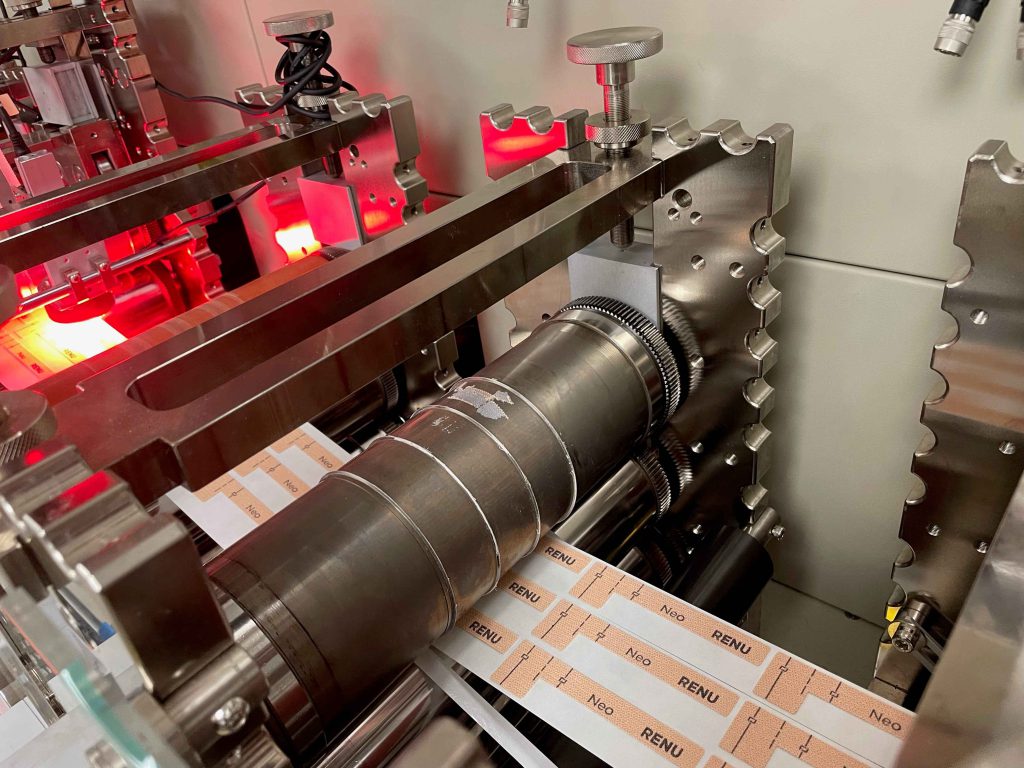A die-cutting machine is a specialized piece of equipment used to cut a variety of materials into specific shapes. It operates by applying pressure to a material placed between a cutting die and a pressure pad. The cutting die, which is made of hardened steel or other durable materials, has the desired shape cut into it.
How Does a Die-Cutting Machine Work?
- Die Creation: A custom-made die is created to match the exact shape required for the cutting process. This die is typically made from hardened steel or other durable materials.
- Material Placement: The material to be cut, such as paper, cardboard, foam, or fabric, is placed on a flatbed or conveyor system.
- Die Alignment: The cutting die is positioned accurately over the material.
- Pressure Application: The machine applies significant pressure to force the material into the cutting edges of the die.
- Material Separation: The cut pieces are separated from the waste material, or slug.

Types of Die-Cutting Machines
There are several types of die-cutting machines, each with its own capabilities and applications:
- Flatbed Die-Cutting Machines: These machines use a flatbed to hold the material and apply pressure evenly across the entire cutting area. They are suitable for a wide range of materials and thicknesses.
- Rotary Die-Cutting Machines: Rotary machines use a rotating cylinder with the cutting die attached. They are ideal for high-volume production and can handle materials at high speeds.
- Platen Die-Cutting Machines: These machines use a platen, or flat surface, to apply pressure to the material. They are often used for smaller-scale production and can handle a variety of materials.
Applications of Die-Cutting
Die-cutting machines are used in a wide range of industries, including:
- Packaging: Creating custom boxes, trays, and other packaging components.
- Printing: Producing die-cut business cards, postcards, and other printed materials.
- Automotive: Cutting gaskets, seals, and other automotive components.
- Electronics: Manufacturing circuit boards and other electronic components.
- Textiles: Producing labels, patches, and other textile products.
Benefits of Die-Cutting
- Precision: Die-cutting machines produce highly accurate and consistent cuts.
- Speed: High-volume production can be achieved quickly.
- Versatility: A wide range of materials and thicknesses can be cut.
- Customization: Custom dies can be created for any shape or design.
In conclusion, die-cutting machines are essential tools for industries that require precise and efficient cutting of materials. By understanding the different types of die-cutting machines and their applications, businesses can make informed decisions about the best equipment for their specific needs.

Leave a Reply